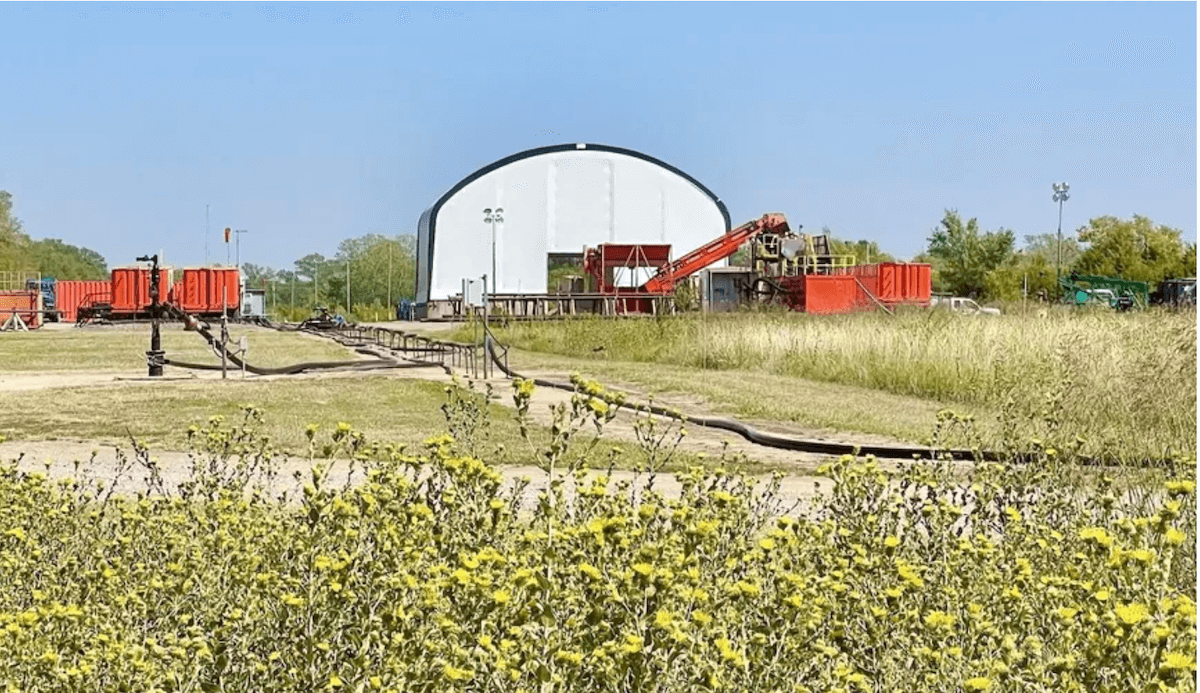TGIF, Agents of Impact!
The Week Ahead
Climate urgency. Climate Week made it clear: It is bottom-up energy that will drive climate action. Investors interested in a more orderly transition can be thankful for the youthful protesters who are passionately keeping climate disruption front and center (see No. 2, below), after government leaders gathered at the U.N. largely failed to make the commitments needed to avert climate catastrophe. Investors, likewise, are not mobilizing capital sufficient to meet the emergency, as was clear at this week’s Global Business Forum (No. 1). The gears of the financial system are starting to turn faster toward the low-carbon transition (No. 3), but not fast enough, as Mark Carney, the outgoing governor of the Bank of England and this week’s Agent of Impact, attests.
The work continues. Blended-finance initiatives are becoming more sophisticated, if not yet attracting the trillions needed to achieve the Sustainable Development Goals (No. 5). Faith-based investors are finding new ways to invest in local communities where they can find real impact (No. 4). Small and growing businesses, and especially women-owned firms, “are relevant to every single Sustainable Development Goal,” says ANDE’s Randall Kempner (No. 6). And Agents of Impact are getting increasingly serious: candidates for impact investing jobs are turning the tables and vetting prospective employers on their impact bona fides (No. 7).
All of this should make for urgent discussions in Amsterdam next week at the Global Impact Investing Network’s investor forum. My colleagues David Bank and Dennis Price will be there and are looking forward to meeting up at ImpactAlpha’s happy hour at 5&33, a club and art space at Martelaarsgracht 5, Tuesday, Oct. 1 from 7-9 pm. RSVP today.
– Amy Cortese, senior editor
The Week’s Agent of Impact
Mark Carney, Bank of England. Wanted: A new central banker to accelerate Carney’s efforts to put climate risk and income inequality at the center of global finance. Carney, a Canadian who in 2013 became the first foreigner to lead the Bank of England, will step down in January. “A new, sustainable financial system is being built,” he told the U.N. Climate Action Summit this week. But “it is not moving fast enough for the world to reach net zero.” In a 2015 speech, Carney famously called out climate’s “tragedy of the horizon” caused by the short term outlook of most investors. The next year, following the Brexit vote, he warned of the systemic risks of “staggering wealth inequalities.”
Since then, Carney has worked to force companies, banks, insurers, asset owners and asset managers to internalize such externalities. The recommendations of the Task Force on Climate-Related Financial Disclosures, which he spearheaded with Michael Bloomberg, have become the bible for climate-risk disclosure. Carney now wants to make such reporting mandatory; the U.K. and the European Union will do so soon. With the Network for Greening the Financial System, a group of 42 central banks (but not the U.S. Federal Reserve), The Bank of England is also “stress testing” its financial system through 2050 against both the catastrophic business-as-usual scenario and the net-zero future called for by the Paris climate agreement.
Some expected Carney to call for something bolder than disclosure, risk-management and stress tests on his way out the door. “Show up again in five years and nothing will have changed if this is all we do,” Yale’s Cary Krosinsky wrote on LinkedIn. Carney wouldn’t disagree. “Ultimately, the speed with which the new sustainable financial system develops will be decided by the ambitions of your climate policies,” he told the U.N. delegates. “It is within our grasp to create a virtuous cycle of innovation and investment for the net zero world… Let’s seize it.” – David Bank
- Share Mark Carney’s story on ImpactAlpha and “like” it on Instagram.
The Week’s Big 7
1. Capital is slow to shift to the low-carbon transition. “We have to move entirely off fossil fuels to an economy based 100% on clean energy,” Michael Bloomberg told the packed audience at the Bloomberg Global Business Forum. Annually, only about $350 billion is being invested in that effort. Avoiding worst-case climate scenarios requires at least $2 trillion in capital commitments per year. “It’s not moving fast enough,” former President Bill Clinton told ImpactAlpha. The takeaways.
2. What climate protesters get that markets don’t (podcast). The bigger the climate protests, the better for investors. “The markets are not set up to think about risks they haven’t experienced before,” contributing editor Imogen Rose-Smith said on ImpactAlpha’s latest Returns on Investment podcast. But protestors, by catalyzing a powerful political constituency, may accelerate the low-carbon transition and soften climate shock, including to investors’ portfolios. Listen in.
3. How finance is retooling to accelerate the transition. This week, 31 banks with more than $13 trillion in assets committed to aligning their portfolios “to reflect and finance the low-carbon, climate-resilient economy.” A dozen insurers and pension funds managing a combined $2.3 trillion pledged to shift their portfolios away from carbon-heavy industries and invest more in clean energy and low-carbon companies and projects. “Transition bonds” have arrived. Let’s see.
4. Faith-based institutions turn to place-based investing for impact. Bon Secours Mercy Health Systems has been a pillar of West Baltimore since its hospital doors opened a century ago. This year, Bons Secours moved to channel more funding and resources to Baltimore, as well as to Cincinnati, where it also runs a large health system. In the latest edition of “Faith and Investing,” we look at how faith-based organizations like Bons Secours are fitting local impact investments into global portfolios. Check it out.
5. Where blended finance is falling short and how to turn it around. The use of philanthropic and public capital to mobilize private capital has been lauded as a way to mobilize trillions to deliver the U.N. Sustainable Development Goals. So far, billions of dollars in blended-finance deals have catalyzed… billions. To move big money, says Convergence’s Joan Larrea, blended finance transactions need more standardization. The most successful structures have both pooled assets and blended capital to transfer and reduce risk. Highlights.
6. Expanding the role of small and growing businesses in meeting the global goals. The Aspen Network for Development Entrepreneurs has helped put emerging-market entrepreneurs on the global development map. For its next act, the nearly 300-member network is focusing on the U.N. Sustainable Development Goals around gender equality, good jobs and environmental action. Capital is key, says ANDE’s Randall Kempner, but talent and support “are directly relevant to the businesses themselves and how they can become businesses that will merit finance.” Focus in.
7. In a twist, top impact investing talent is vetting prospective employers. Financial institutions are finding themselves in the hot seat as job candidates increasingly scrutinize them for their commitments to impact and environmental, social and governance, or ESG, investing. In a guest post on ImpactAlpha, Kate Shattuck and Gloria Mirrione of search firm Korn Ferry say “top-tier impact investing candidates are now the ones doing the evaluating.” Role reversal.
The Week’s Dealflow
Innovative finance. The Nature Conservancy wants to bring reef insurance to the U.S…. Open Road Alliance launches impact fund to provide entrepreneurs with short-term financing… Schox Philanthropy’s “philanthropic circle” helps tech founders give back early.
Fund raises. Allianz launches €300 million impact fund for European investors… Splunk launches venture arm with $50 million impact fund… MIT’s Solve Innovation Future donor advised fund raises $3.5 million of planned $30 million for tech solutions to global challenges.
Low-carbon transition. Hydrostor raises $37 million for battery-free energy storage tech… Ecosystem Integrity Fund backs Complete Solar to accelerate U.S. home solar adoption… Normative raises $2 million to let companies automate carbon reporting.
Growth markets. Aavishkaar scores $37 million for expansion in Asia and Africa… Indonesian peer-to-peer lender Julo adds $10M to its Series A.
Sustainable food. Arabella launches initiative to boost deal pipeline for food startups… FarmWise raises $14.5 million for sustainable robotic farming.
Public markets. Fidelity adopts Ethic to boost financial advisors’ sustainable investing options.
The Week’s Talent
Louis Hobson, ex- of National Flood Services, joins Chubb as senior vice president of flood insurance for North America… Global Reporting Initiative appoints Verna Lin to head its Greater China regional hub, which is relocating from Beijing to Hong Kong… Kresge Foundation names Aaron Seybert managing director of its social investment practice as Kimberlee Cornett prepares to move on… Citigroup promotes Valerie Smith to the newly created role of Chief Sustainability Officer.
The Week’s Jobs
Chan Zuckerberg Initiative is looking for a ventures principal in Redwood City… The ImPact is hiring an associate in New York… In San Francisco, Humanity United’s Working Capital investment fund seeks a managing director… Also in San Francisco, Jewish Community Federation and Endowment Fund is looking for a chief impact officer and an impact investing manager.
MCE Social Capital is hiring a portfolio manager in San Francisco and one in Barcelona… Unreasonable seeks a director of press and communications in Boulder… New Profit seeks a portfolio manager in Boston… Social Finance is hiring an associate director in Boston, Austin or San Francisco… Defy Ventures is looking for an executive director for its northern California office.
Thank you for reading.
– Sept. 27, 2019











